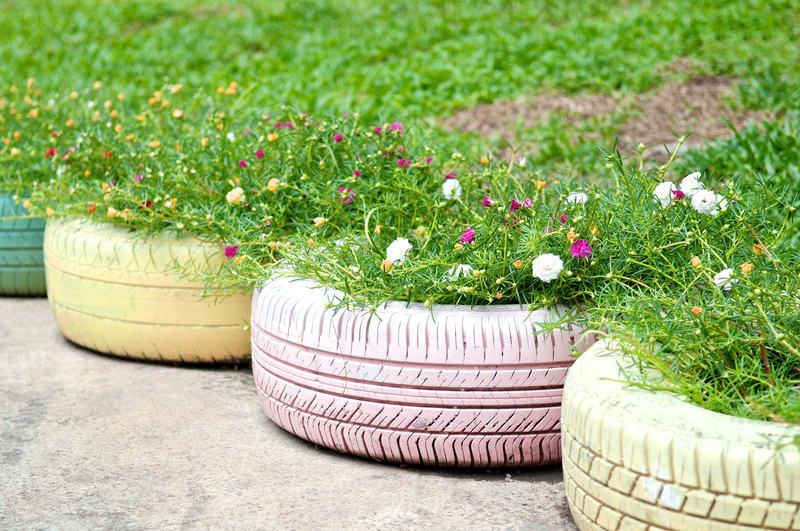Efficient Strategies to Maintain a Clutter-Free Home Long After the Clean-Up
Are you overwhelmed by the constant struggle to keep your living space tidy? After spending hours or even days deep cleaning your home, it can be frustrating to see clutter reappear almost overnight. Achieving a clutter-free home is a wonderful accomplishment, but maintaining it requires a different set of skills and ongoing habits.
In this guide, we'll explore proven strategies to maintain a clutter-free home long after the clean-up. We'll cover smart organizing habits, efficient routines, and practical tips to keep your home serene, organized, and welcoming every day. Whether you live in a compact apartment or a spacious house, these strategies can be tailored to fit your unique lifestyle.
Why Is It Challenging To Maintain A Clutter-Free Home?
Before diving into strategies, let's consider why clutter accumulates so quickly. Understanding the root of the problem helps in applying effective, long-lasting solutions.
- Busy schedules: With work, family, and social commitments, it's easy to let organization slide.
- Inadequate storage: Lack of proper storage makes it harder to put things away promptly.
- Emotional attachment: Items with sentimental value can be difficult to let go.
- Lack of routine: Without consistent cleaning habits, clutter can return almost instantly.

Developing Long-Term Clutter-Free Habits
The key to maintaining a tidy home isn't about organizing once, but about developing daily habits and adopting a proactive mindset.
1. Adopt the "One In, One Out" Rule
This simple yet effective rule ensures your possessions never exceed your storage space. Each time you bring a new item into your home, commit to removing an old one. This applies to clothing, kitchen gadgets, books, and even children's toys.
- Before buying: Ask yourself if you really need the new item.
- Gift or donate: Remove redundant items by gifting to friends, donating to charity, or recycling responsibly.
2. Schedule Regular Decluttering Sessions
Instead of waiting for clutter to pile up again, schedule small, regular decluttering sessions. Even 10-15 minutes a day makes a huge difference over time.
- Weekly sweep: Pick a specific day each week to go through a room or category of items.
- Set a timer: Use a timer to stay focused and prevent overwhelm.
3. Designate a Place for Everything
The most efficient way to maintain a clutter-free home is to assign a home for every single item. When everything has its place, it's much easier to tidy up quickly and consistently.
- Label storage bins: This makes it easier for all household members to know where items belong.
- Use drawer organizers: Keep small items, like office supplies or utensils, sorted and contained.
4. Streamline Surfaces Daily
Flat surfaces like countertops, tables, and desks are notorious clutter magnets. Make it a daily habit to clear them off. A quick pass each evening ensures clutter never has a chance to accumulate.
- Keep only essentials on surfaces: Store the rest out of sight.
- Decorate minimally: Using just a few decor pieces keeps surfaces attractive without becoming cluttered.
Efficient Storage Solutions to Keep Clutter at Bay
Invest in Smart Storage
Well-chosen storage solutions are crucial for maintaining a clutter-free lifestyle. The right containers, shelves, and organizers make it effortless to put items away and keep them accessible when needed.
- Multifunctional furniture: Think ottomans with storage space, or beds with drawers beneath.
- Vertical storage: Use wall-mounted shelves and hooks to maximize space.
- Clear bins: Let you see contents at a glance, reducing the chance of forgotten clutter.
Establish Drop Zones for High-Traffic Areas
Entryways and mudrooms often become dumping grounds for bags, shoes, packages, and keys. Combat this by setting up organized drop zones where needed.
- Trays and bowls for keys and mail: Prevents these small items from spreading across your home.
- Shoe racks: Encourage household members (and guests) to take off shoes and keep pairs tidy.
- Hooks for bags and coats: Make it easy for everyone to hang up belongings immediately upon entering.
Develop Consistent Cleaning and Organizational Routines
Embrace Maintenance Cleaning
Rather than waiting for big cleaning days, make tidying up part of your daily or weekly schedule. Small efforts add up and prevent the need for exhausting marathon cleaning sessions.
- Five-minute pick-up: Involve your whole household in a quick cleanup before bed or after dinner.
- Nightly reset: Reset your home by straightening sofa pillows, clearing counters, and putting away stray items.
Use Checklists for Key Areas
Having a checklist for each room ensures you won't overlook trouble spots where clutter tends to build up.
- Kitchen: Clear sink, wipe counters, sort mail pile.
- Living room: Fold throws, return remotes, arrange books.
- Bedroom: Put away clothes, make bed, clear nightstand.
- Bathroom: Hang towels, clear vanity, restock supplies.
Mindful Consumption: The Secret to Long-Term Organization
The most efficient way to maintain a clutter-free home long after cleaning is to be intentional about what comes into your space in the first place.
- Make room-based shopping lists: Only buy what you truly need for a specific area to avoid impulse purchases.
- Quality over quantity: Invest in fewer, higher quality items instead of accumulating multiples or "just in case" items.
- Be wary of freebies: Avoid accepting promotional items or hand-me-downs unless you have a true need for them.
Family and Housemate Cooperation
Maintaining an organized, clutter-free home is much easier when everyone contributes. These strategies help encourage cooperation:
Assign Responsibility Zones
Divide your home into zones and assign each family member responsibility for maintaining their area. Rotating these tasks weekly keeps things fair and teaches valuable life skills.
Model and Encourage Tidy Habits
Lead by example and praise efforts when others remember to put things away. For children, tidy-up time can be made into a fun game or routine part of their day.
Hold a Monthly Family "Reset" Day
Once a month, set aside time to work together and reset common areas. Revisit storage systems, clear out unused items, and reorganize as needed. This habit preserves the clutter-free environment you've worked hard to create.
Strategies for Specialized Spaces
Home Offices
A clutter-free workspace boosts productivity and reduces stress. Apply these strategies:
- Digital organization: Regularly clear your desktop, email inbox, and organize digital files.
- Paper control: Use trays, shredders, and filing systems to prevent paper pile-up.
- Minimal supplies: Keep only essential items at arm's reach.
Kids' Rooms and Play Areas
- Rotate toys: Store some toys out of sight and swap them regularly to keep interest high and clutter low.
- Baskets and bins: Use colorful containers children can easily use.
- Donation routine: Involve kids in choosing unused toys to pass on to others.
Garages and Storage Spaces
- Wall-mounted storage: Hooks, shelving, and pegboards keep tools and supplies off the floor.
- Label everything: Clear labels make it easy to find (and return) items.
- Seasonal checks: Review outdoor gear and decorations after each season, donating or discarding as needed.

When to Seek Professional Help
Sometimes, maintaining a clutter-free home feels impossible without outside help. If you're struggling with chronic disorganization, consider:
- Professional organizers: These experts offer personalized solutions and tips for your space and lifestyle.
- Cleaning services: Regular cleanings provide a helpful reset and maintain a tidy baseline.
- Decluttering coaches: Especially helpful for those dealing with emotional attachment to items or overwhelmed by the process.
Final Thoughts: Enjoy the Benefits of a Clutter-Free Life
Maintaining a clutter-free home after a big clean-up may seem intimidating, but it's entirely achievable with efficient decluttering strategies, consistent routines, and mindful habits. The rewards are well worth the effort--less stress, more time, and a welcoming haven for you and your loved ones.
- Reduced cleaning time: Less clutter means it's easier and quicker to clean each day.
- Improved well-being: A tidy environment promotes relaxation and focus.
- Increased functionality: Spaces become more usable and enjoyable.
Ready to enjoy the peace and simplicity of a consistently organized home? Start applying these efficient strategies today and watch your clutter woes disappear for good!
Remember: Maintaining a clutter-free home isn't about perfection, but about progress and developing sustainable habits that fit your lifestyle.